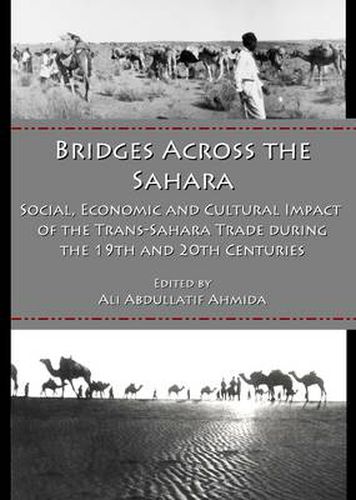Readings Newsletter
Become a Readings Member to make your shopping experience even easier.
Sign in or sign up for free!
You’re not far away from qualifying for FREE standard shipping within Australia
You’ve qualified for FREE standard shipping within Australia
The cart is loading…






The objective of this edited book is to rethink the history of colonial and nationalist categories and analyses of modern Africa through an integration and examination of the African Saharan trade as bridges that link the North, Central, and West regions of Africa. Firstly, it offers a critique of the colonial, postcolonial and nationalist historiographies, and also of current western scholarship on northern and Saharan Africa especially Middle East Studies and African Studies Associations. Secondly, it provides an alternative narrative of the forgotten histories of the Sahara trade as linkages between the North and the South of the Sahara.The Sahara desert was seldom a barrier separating the northern, middle and western parts of the continent. On the contrary, the desert was and still constitutes a bridge of communication which connects northern Africa, West Africa and the countries in the southern Sahara. This connection was evident in the most important cultural, economic and social relations. Two connecting routes or bridges existed across the Sahara. First, the Hajj Routes from the north west of Africa to the holy places in Arabia. Second, are the trade routes between central and west Africa and the shores of North Africa. These trans-Sahara trade routes extend from the East Darb al-Arba'in in Egypt and Sudan to the far west borders of Senegal, Mauritania and Morocco. Hence the ties between the countries in North Africa and Wadai, Bornu, Kanim, Zender, Aer and others existed since pre-historic eras. The origins began before and were enhanced by the Islamic conquests and continued to present day.
$9.00 standard shipping within Australia
FREE standard shipping within Australia for orders over $100.00
Express & International shipping calculated at checkout
The objective of this edited book is to rethink the history of colonial and nationalist categories and analyses of modern Africa through an integration and examination of the African Saharan trade as bridges that link the North, Central, and West regions of Africa. Firstly, it offers a critique of the colonial, postcolonial and nationalist historiographies, and also of current western scholarship on northern and Saharan Africa especially Middle East Studies and African Studies Associations. Secondly, it provides an alternative narrative of the forgotten histories of the Sahara trade as linkages between the North and the South of the Sahara.The Sahara desert was seldom a barrier separating the northern, middle and western parts of the continent. On the contrary, the desert was and still constitutes a bridge of communication which connects northern Africa, West Africa and the countries in the southern Sahara. This connection was evident in the most important cultural, economic and social relations. Two connecting routes or bridges existed across the Sahara. First, the Hajj Routes from the north west of Africa to the holy places in Arabia. Second, are the trade routes between central and west Africa and the shores of North Africa. These trans-Sahara trade routes extend from the East Darb al-Arba'in in Egypt and Sudan to the far west borders of Senegal, Mauritania and Morocco. Hence the ties between the countries in North Africa and Wadai, Bornu, Kanim, Zender, Aer and others existed since pre-historic eras. The origins began before and were enhanced by the Islamic conquests and continued to present day.